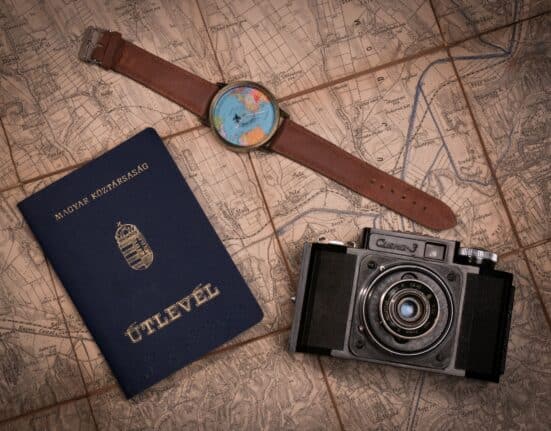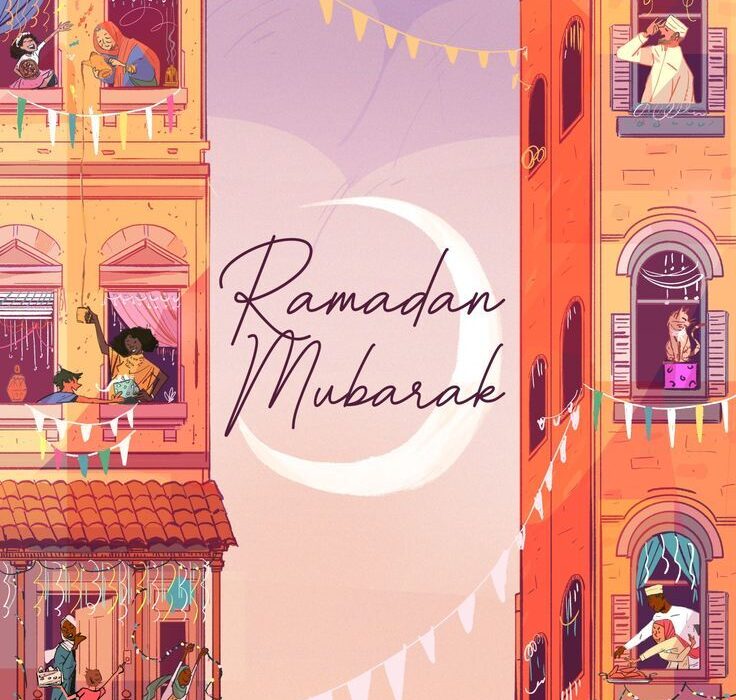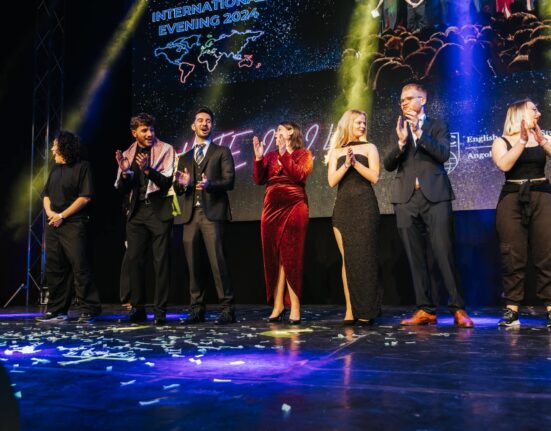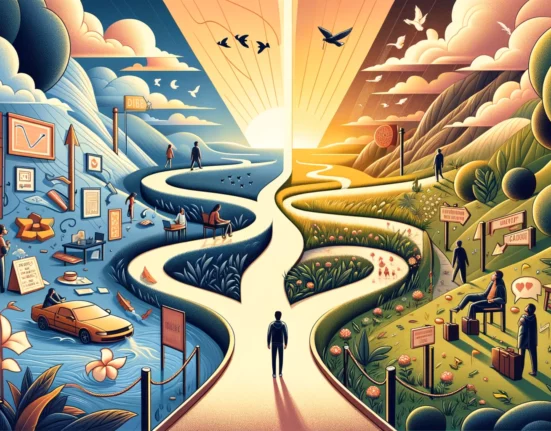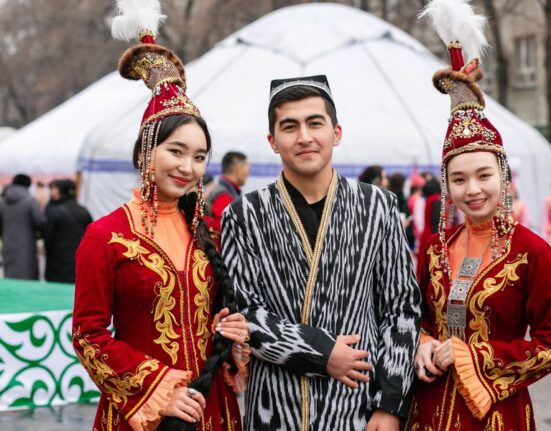A huge chunk of the international community in the University of Pécs is composed of Middle Eastern people. We see them every day and pretty much everywhere: in the university halls, in the classrooms, at grocery stores, parties, you name it and they’re there. Girls and boys with dark and long eyelashes framing round mostly brown eyes, thick eyebrows, high cheekbones and luscious hair, from straight to curly to our home girls wearing hijabs. It’s quite hard to miss them. Until I found myself at Umami during lunch and it was surprisingly empty. I hadn’t put much thought to it at the time, until a friend I was expecting to meet told me that she couldn’t go because Ramadan had started, and she was fasting. For a whole month they are immersed in this deep spiritual experience that for the rest of us, non-Muslims, might simply appear as self-imposed starvation under a religious pretext. Because how spiritually pertinent could intermittent fasting be that thousands of people, inside and outside Islamic countries, put themselves through it for a whole month, year after year?
Some questions were asked about Ramadan to two students at the Medical School: Mahek Shaikh and Mostafa El Sebay. Hopefully, their answers will shed light on what motivates them and so many others to carry on an islamic tradition as old as time in the most adverse environments; whether it is stressful to be a medical student in a foreign country; or what is the life like of a young woman suddenly terrorized by armed conflicts and bombings, denied of safety and basic human rights.
What does Ramadan mean to you personally?
Mahek: Ramadan is the ninth month of the Islamic calendar, where we fast for 29-30 days depending on the moon. Ramadan is about sacrifice and learning how we’re blessed for having things we see as ordinary, while some people aren’t as blessed. At some point during the fast, we realize that: “Oh, I haven’t drank water all day, oh I’m so thirsty”. We comprehend that this is someone else’s everyday life. Someone doesn’t have these amenities nor these basic life things every day, and we become grateful.
Mostafa: It’s a month where we fast for most part of the day from dawn to Sunset. It’s a time when we get closer to religion and to God. For me personally, it’s about how I grew up and how it always made me feel… During Ramadan I’ve always felt extra tranquility when I’m praying and when I’m reciting the Quran. But above all, observing Ramadan is an obligation. I don’t get to not observe it. I mean, I have the free will to not do it, but according to my religion and my faith it’s an obligation. But when you do observe Ramadan, especially when you grew up with it, you feel that it’s always different from the normal days of the year. There’s always something different that you like every time, and I would say that those serve as motivation.
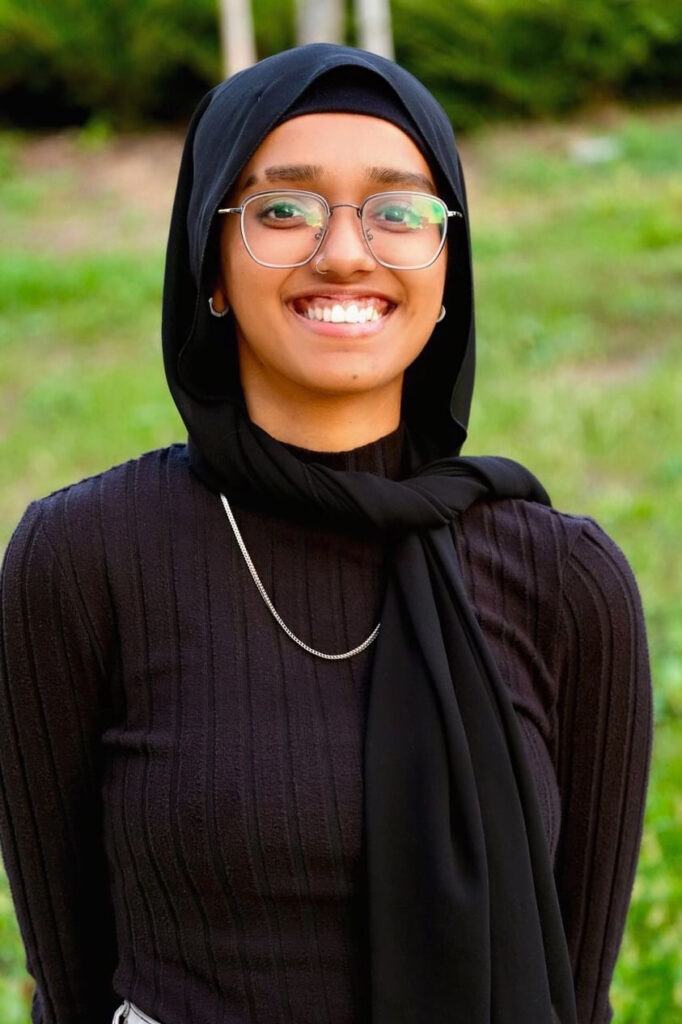
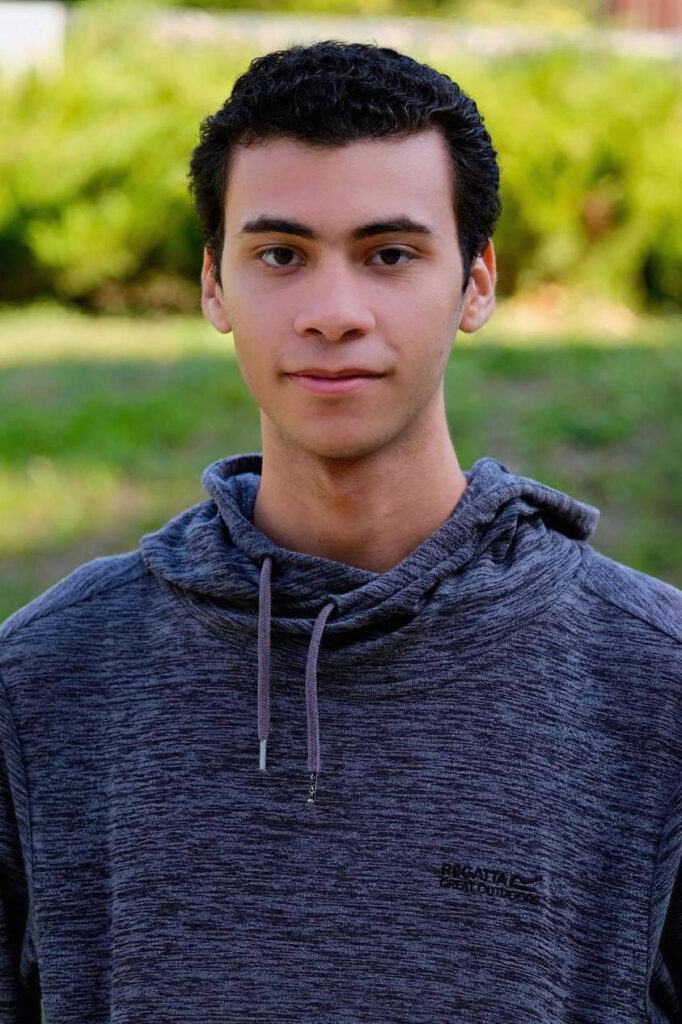
How is a regular day during Ramadan?
Mahek: We start the day with Suhoor, which is the first meal of the day, every day before the Sun rises. This marks the beginning of the fasting period and throughout the day 5 prayers are prayed. After the fourth one, Maghrib, we break our fast and have iftaar. Iftaar is a feast shared with friends and family. It could also be lonely, especially for students abroad. My recent iftaars were spent sitting at my study table with some food and my Ipad, while back home it’s a huge celebration. Not just indoors, but in the mosque you can see non-Muslims going and eating. No one will ask you which religion you are or how much you’ve eaten. Even if you’re a Muslim and you are not fasting, you are still welcome to come and eat. Because Ramadan is the month of repentance, of giving, of charity, of being nicer to other people. We don’t care who you are, just come eat and be happy. Have a full stomach and then go home. We aren’t going to judge you. I’m in the EGSC (English-German Student Council) and I think we have 3 members that are fasting, but we’re still hoping to have an EGSC iftaar, even though the great majority is non-Muslims. It’s a thing of our culture, of our religion, that we’d love to include you also. We want you to come and see the beauty of it, we want you to see how we pray, how we eat and it’s good food. Why would you bail on that?
What role would you say that prayer has during Ramadan?
Mostafa: Prayer on its own is the way to God. Prayer is how you thank God and ask for what you desire. If we do it five times or sixteen times, it shows how much we need God. There’s an extra prayer in Ramadan called Taraweeh, which I personally really enjoy. It is extra special because it is specifically for the month of Ramadan.
How does Ramadan affect your daily routine and lifestyle? How different is it from the environment back home?
Mahek: I think that after moving and coming to university, it’s hard to manage my daily activities, reading the Quran and studying. Once I get home, I eat iftar and then I’ve used all my energy for the day. But I must pray and there are also extra prayers, so it requires more energy to pray on top of everything else. It’s a hard balance. The fact that I’m in a foreign environment makes it so much harder, back home you could hear the Azan (call to prayer) five times a day, it was a normal thing for me. But here, I don’t get to hear that. And then for iftar, you can’t just eat anything. Back home you have a proper meal, you have people around you. It’s Ramadan but I don’t see my people. Sure, I have Muslim friends, but they aren’t that many and we’re all busy with our own lives. We have different schedules so it’s hard to manage, it’s not a guaranteed thing that today, tomorrow or throughout the rest of Ramadan we’ll be eating together.
Mostafa: For me as a student, especially in Hungary, the fasting hours are much longer than what I was used to back home. We would fast from 5 AM back home till 6 PM but here we start fasting from around 4 AM to almost 6 PM. And then towards the end of Ramadan it becomes 7:30, because of the region. I was so tired once that I missed my first class of the day.
In what ways does Ramadan inspire personal growth and reflection in you?
Mahek: For me, food and water deprivation are always a huge realization. And praying, we pray a lot. We have extra prayers, we try to be more truthful, to use less curse words. I’m trying, but it isn’t going as well as I hoped. We also try to maintain better relationships with our relatives and family, we get together no matter how crass the relationship has been, and we eat.
I also asked Mahek if perhaps observing Ramadan could be a peer pressure response from some people.
Mahek: From some people? Yeah. There are people who don’t pray during the entire year and then pray only during Iftar. But I wouldn’t see this as saving face, I rather believe that this person is trying to get closer to God and we shouldn’t judge it. Because one never knows what the other person went through during the year. For me it is more of an: “I’m trying to be a better person, they’re also trying to be a better person”. We’re all just trying to get closer to God. Some people don’t fast in Ramadan and that’s their problem. I fast because I want to be closer to my God. Some people just pray in Ramadan, but we should still appreciate their efforts because they’re actively trying to be closer to God. You never know, maybe this Ramadan it will get better. If you fast, I’m happy for you. If you don’t, that is your decision. But I hope someday you will reach the point where you will choose to fast on your own.
During Ramadan it is said that the bad spirits, Jinn or Shaytan, are locked up by God. So, everything we do in Ramadan reflects our true selves. By the end of Eid, we find out that okay, that was NO evil spirit, that was me on my own accord. My family and I try to reflect on all of that and we understand that maybe we should try to improve this or that aspect.
Mostafa: It’s the inclusivity, we don’t really… I’ll use the word exclude for lack of better words; we don’t exclude anyone. The idea of people sharing Iftaar or Eid with us whether they’re fasting or not, the idea of them sitting down and enjoying what we enjoy. A friend of mine fasted with me once, for the sake of trying what I do and then in the end she said she liked it. I asked what she thought about it and her answer was quite impressive
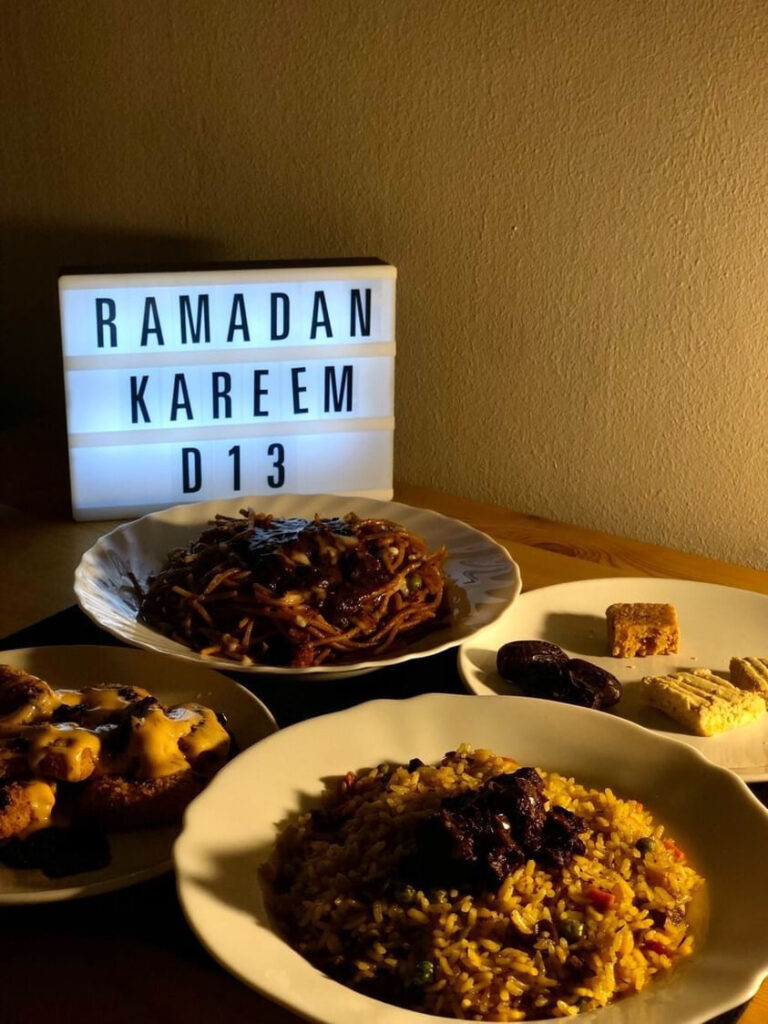
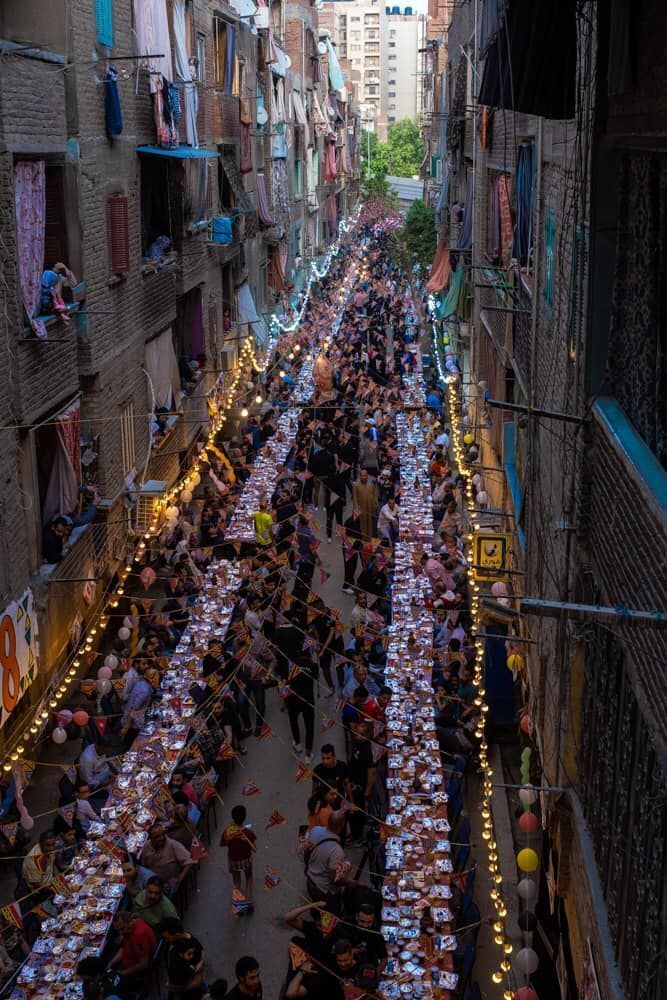
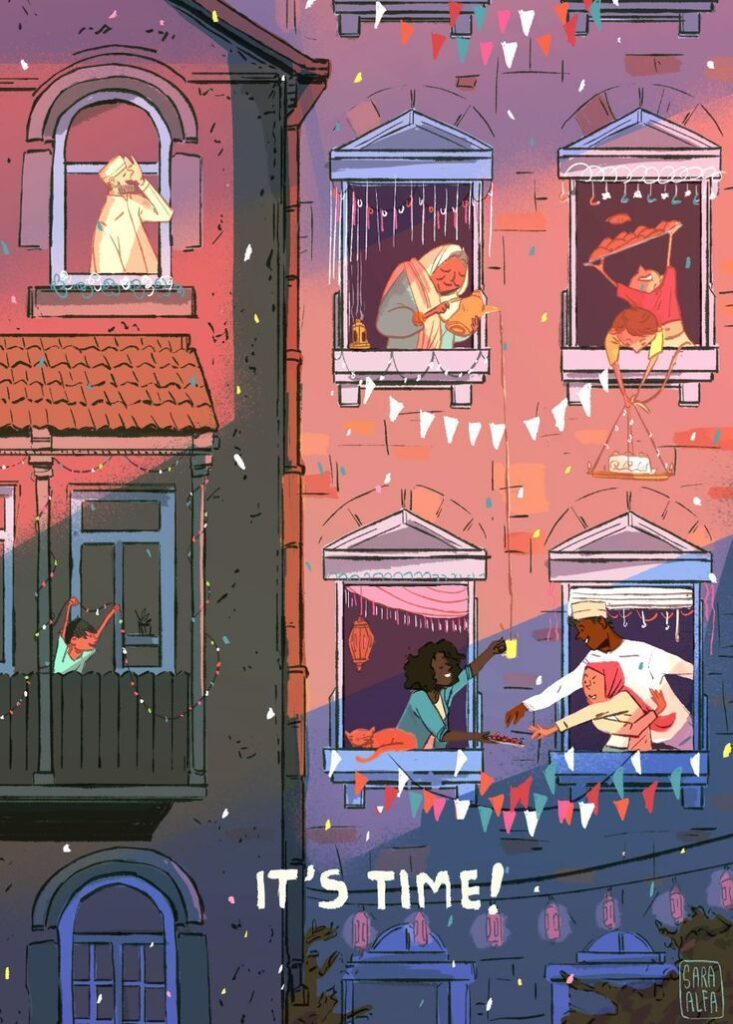
“While I’m no stranger to fasting during Ramadan, this time around I decided to approach it with a bit more finesse. Although I’m well aware that there are layers to what people constitute as proper fasting, for me, it meant respecting all the dos and don’ts I’ve gathered from my Muslim friends over the years. As the days passed I found myself fasting with some other friends, sharing Suhoor meals and having Iftaar hangouts. They even took me to the local Islamic center here in Pécs, which was, naturally, a whole different experience on its own. What ultimately made me fall in love is how beautifully these people come together and share something so common, yet so intimate; their meals, their prayers, their time. It was a rewarding, and at times challenging journey for me. I’m undoubtedly experiencing some of the side effects of fasting, such as waking up around 3 am just to drink water that did mess with my sleep schedule. Yet, it instilled in me an even higher level of admiration towards those who fast Ramadan, and the significance of proper hydration – lessons learned the hard way, quite literally, in the dead of the night.” – Milica Radinovic.
It made me proud of what I do and it strengthened my want to keep doing it, if that makes sense.
How do you celebrate Eid al-Fitr at the end of Ramadan?
Mahek: Eid is a celebration for completing Ramadan successfully. You have sacrificed an entire month, so this is a reward from God. We have our last iftar and then Eid is the next morning. There’s a specific prayer for Eid so we go to the mosque, we pray that prayer and then it is marked as the beginning of Eid. We celebrate it for two days, Eid-al-Fitr day 1 and Eid-al-Fitr day 2. In the UAE (United Arab Emirates), since it’s an Islamic country, these two days are holidays.
Mostafa: If I could, I would go back to the days of celebrating Eid at home with my family. We just gathered around, had breakfast together, talked and then we’d usually go out and enjoy the sun or whatever. Just enjoy each other’s company, that’s what Eid is for me.
What are some common misconceptions about Ramadan that you’d like to address?
Mahek: I mostly get comments like: “You don’t even drink water?” We don’t drink anything, people. Some see it as oppression, but for a lot of them even hijab is oppression. “Why would you make yourself go through this?” – many actually ask this. But for us it’s like: it was said by God that we should observe it and it is honestly very rewarding. But at the end of the day, it’s a personal choice. Everything is a personal choice. Something that also happens is people changing courses as soon as they see me, because I am fasting, and they aren’t. Or even, I’m walking around and then I sit with non-Muslims, and they are eating and then they suddenly remember that “Oh, it’s Ramadan. We shouldn’t be eating in front of her.” I roll my eyes and… No. I don’t want anyone to feel this way. You shouldn’t go through something you aren’t supposed to. This is something I must do for myself. If I walk down the hall, I see you and you are eating, continue eating. If it’s tempting me then it is something I should work on. You should still eat and drink water and say whatever it is you want to say. This is a moment for self-reflection. If you aren’t observing Ramadan, its rules aren’t applied to you.
Mostafa: Most of the time, people see us fasting and they think that Ramadan is only about abstaining from food and drink, and this is not true. Our prophet once said: “The one who doesn’t fast from everything that he/she does in a normal day (like bad habits and such) has got nothing from his/her fast, except being hungry and thirsty. So, it really doesn’t count for anything if you fast, but you keep cursing all the time. A person who lies during Ramadan, is a person who’s fasting for the sake of abstaining from food or drink. What is it going to count for? It counts for nothing.
What advice would you give to someone who is interested in learning more about Ramadan? Or even to your younger self in the beginning of your Ramadan experience?
Mostafa: If you’re interested, I’d advise you to read online, talk to some muslim friends, and more importantly talk to a Sheikh. A Sheikh is a person who leads prayer and has more knowledge than normal people about Islam. This would be the most important, since he would make sure you’d have the right guidance.
Mahek: To myself, I’d like to tell my past self to be more honest with things. For other Muslims I’d encourage them to try and be more religious during Ramadan, it can be a fun thing also. Yes, the main thing is to please God. But you also get a rewarding feeling. After fasting all day, you get to eat all this great food and that feeling, I think, is unmatched. You don’t get that anywhere else except for Ramadan. You should try to be nicer, to smile more, to yourself and to other people.
Sources:
